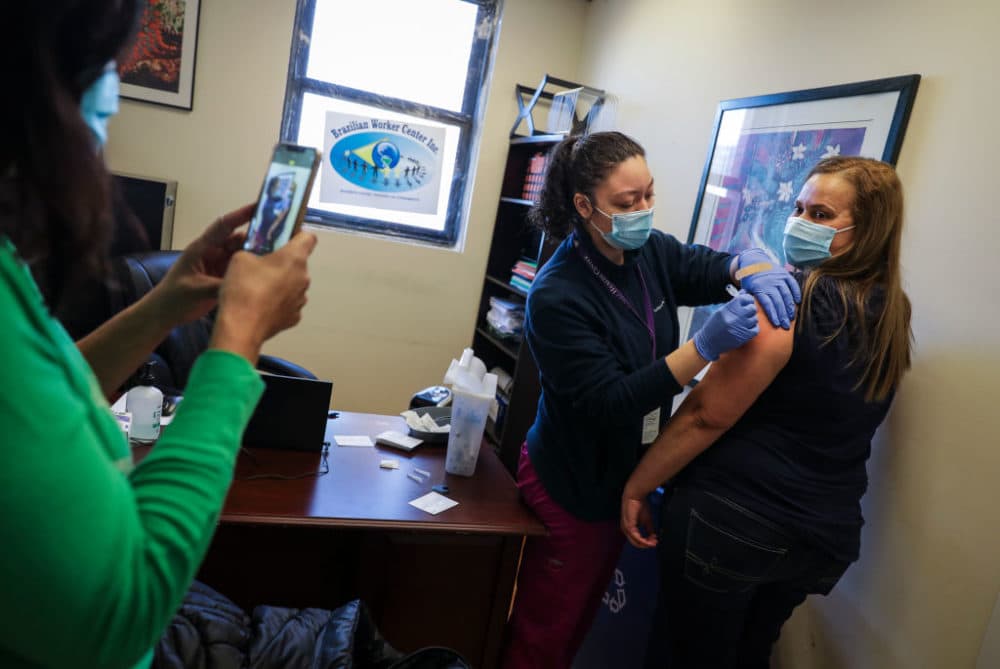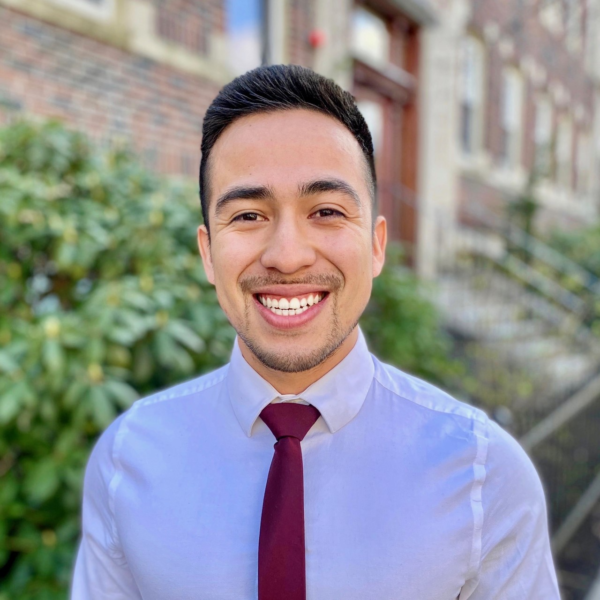Advertisement
Commentary
Mass. Should Expand Medicaid To Undocumented Immigrants

S. Medina, a 62-year-old man from El Salvador, will likely be dead in three years. A doctor will write “advanced prostate cancer” on his death certificate, unwittingly obscuring his true cause of death: lack of access to health care.
Mr. Medina is one of about 275,000 undocumented immigrants in Massachusetts, most of whom lack access to health insurance. Currently, undocumented immigrants in the commonwealth only qualify for MassLimited, an extremely limited version of Medicaid that exclusively covers emergency health care services. There are a couple of exceptions to this rule: pregnant women and infants, regardless of immigration status, are eligible for traditional Medicaid.
California will soon have even more exceptions. Last month, Gov. Gavin Newsom and state legislators agreed to expand Medi-Cal, the state’s public health insurance program for low-income residents, to undocumented immigrants over the age of 50 (this, after the state expanded Medi-Cal to cover undocumented children and young adults under the age of 26 in 2020). The expansion, set to begin next May, is expected to benefit about 235,000 people and cost of $1.3 billion per year.
Undocumented immigrants in Massachusetts receive most of their care at vital, but often under-funded, community health centers supported by our state's Health Safety Net.
I met Mr. Medina at a student-run evening clinic in a community health center; the clinic no longer exists because the program could not obtain adequate funds. Nationwide, the fiscal burdens of the COVID-19 pandemic have resulted in about 2,000 community health center site closures.
It is true that Massachusetts has the lowest uninsured rate in the country. Only 3% of residents in the state lack access to health insurance. But it is also true that cities like Lawrence and Chelsea, where Mr. Medina lives, have uninsured rates two to three times greater. If Massachusetts is to be a state for all, it must follow California’s lead and expand Medicaid to undocumented immigrants.
Going to the emergency room for medical care that could be handled in less acute settings costs the U.S. health care system an extra $32 billion per year.
Expanding Medicaid to this population makes financial sense. Emergency health care services, which must be covered by Medicaid under current law, are usually more expensive than services delivered in less acute settings — which Medicaid does not cover for undocumented immigrants. For example, the cost of emergency kidney dialysis is 3.7 times higher than the cost of dialysis at an outpatient center. But guess where an undocumented resident with kidney failure would receive this service? In the costlier emergency department. These kinds of cost multipliers writ large add up. Going to the emergency room for medical care that could be handled in less acute settings costs the U.S. health care system an extra $32 billion per year.
If we assume the cost of covering one undocumented immigrant in California is equal to the cost of covering one undocumented immigrant in Massachusetts, the state would require $5,531 per person per year. If Massachusetts were to expand Medicaid to undocumented adults over the age of 50 — an age group that makes up about 12% of our undocumented population — it would cost approximately $129 million per year. That’s a tiny percentage of our state’s cost for Medicaid. Perhaps we could even cover more people.
Advertisement
We should also remember that undocumented immigrants already help to cover these costs. In 2018, undocumented immigrants in Massachusetts paid an estimated $596.3 million in federal taxes and $252.5 million in state and local taxes.
We are collectively much safer when every community member has access to health care.
The COVID-19 pandemic has made the argument for insuring undocumented immigrants even stronger. We are collectively much safer when every community member has access to health care. But fearing legal repercussions, many immigrants at high risk of suffering from COVID-19 were afraid to seek testing and care. The same is true today when it comes to accessing COVID-19 vaccines. Ensuring that everyone in the commonwealth has health insurance could allay fears, bring everyone into our health care system, and improve public health.
Throughout the pandemic, we’ve also witnessed the heroism of essential workers. Only 16 states are home to more than 100,000 undocumented workers; Massachusetts is one of them. These undocumented workers are overrepresented as cooks, janitors, cashiers, waiters and waitresses, food preparation workers, and other occupations we relied on during the state-wide shutdown and now that things are opening up.
Mr. Medina is one of these workers. He shovels our snow during the winters and prepares our food during the warmer seasons. In April 2020, he was hospitalized with COVID-19. During his bout with the virus, his oxygen levels fell to dangerously low levels and he experienced fevers, headaches, chills and body aches. All of that, while his advanced prostate cancer, a condition that may have been prevented with earlier access to care, lurked in the background.
Mr. Medina is a hero, and it is time for Massachusetts lawmakers to extend a helping hand to him and others like him so that they can receive the health care they need. Lawmakers recently re-filed a bill to guarantee driver's licenses for all. Now let's file a bill to guarantee health care for all.
We can expand Medicaid to more undocumented people; it’s the smart, and more importantly, the right thing to do.
